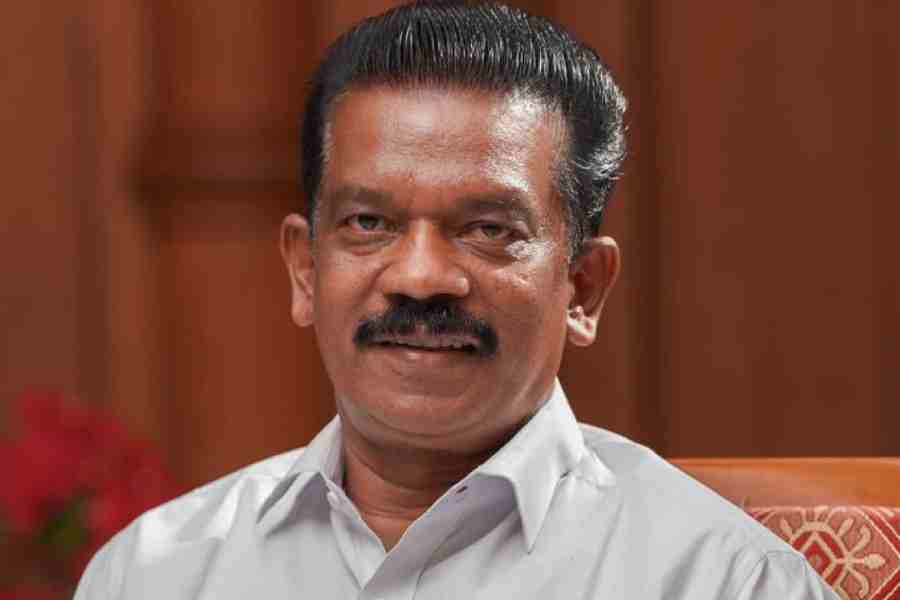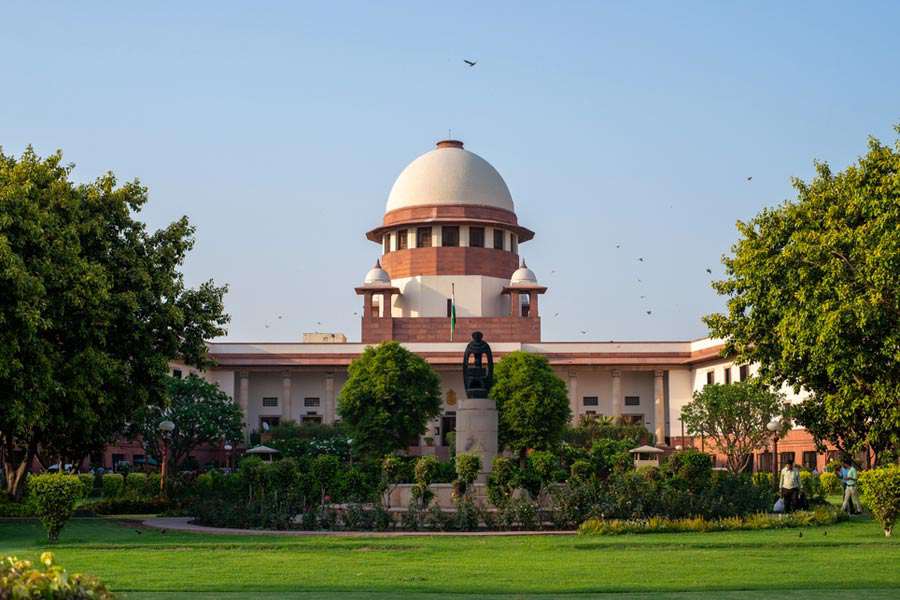Untouchability survives, coiled up and unable to resist the temptation to strike at will.
A minister in Kerala has recounted how he was subjected to the worst aftereffect of the caste system at a temple in Kerala on January 26.
The minister, K. Radhakrishnan, is one of the most respected communists in Kerala, associated with programmes that promoted scientific temperament and literacy in a state that prides itself on its progressive credentials. January 26 is the day India became a republic that assures all citizens that they are equal. Among the portfolios Radhakrishnan, a Dalit, oversees is the Devaswom berth that looks after the facilities at temples.
None of these mattered this Republic Day at a Shiv temple in Payyannur, one of the extant ancient civilised places in north Kerala.
On Monday, Radhakrishnan was seen saying in a video clip: “The main pujari lit a (small) lamp. I thought he was coming towards me to hand over the lamp. But he didn’t, and went ahead to light the nilavilakku (a tall ceremonial lamp). I merely assumed it to be a part of the ritual. He then gave the small lamp to the assistant pujari. He too lit the (big) lamp. I thought he would give it to me. But he quickly placed it on the floor, perhaps assuming that I would pick it up and light the (big) lamp.”
Radhakrishnan added that he refused to light the lamp because of the insult. The CPM leader’s portfolio covers the Malabar Devaswom Board that governs the temple where he was invited to inaugurate a newly built facility.
Radhakrishnan’s account is of particular significance at a time Prime Minister Narendra Modi and the rest of the Sangh parivar ecosystem have sought to turn Sanatan Dharma, which critics say reinforces the caste system, into a political issue. Few mainstream parties are keen to address the subject head-on for fear of a potential voter backlash in northern India.
“Those who created the caste system used their brains way more than those who launched Chandrayaan. That the caste system still exists is evidence of their level of intelligence,” Radhakrishnan, minister for Devaswom (temple affairs) and the welfare of Scheduled Castes and Scheduled Tribes, told reporters on Tuesday.
Radhakrishnan had raised the issue then itself but it gained wider attention after the video started circulating earlier this week.
On January 26, while addressing an event associated with the temple event, the minister had lashed out at caste discrimination and questioned the rationale behind the priests having no qualms while accepting money from “untouchables”.
“I said, in the presence of the pujaris (priests), that untouchability is not an issue while accepting money from untouchables. The money (thus accepted) would have passed the hands of everyone from a butcher to a fish vendor. But they have no reluctance in accepting it,” Radhakrishnan recalled having told the gathering.
He clarified that it was not an issue involving an individual like him, but a sign that remnants of the caste system still existed in Kerala society. “This should not be seen as a humiliation faced by an individual, but rather how remnants of the disaster (caste system) still exist,” he said.
While Radhakrishnan said he didn’t seek any action against the two priests, education minister K. Sivankutty on Tuesday said the “government is duty-bound to take necessary action”.
The head priest of the temple, Padmanabhan Unni Namboothiripad, told reporters on Tuesday that he wasn’t present at the event and hence wasn’t privy to what happened. “I don’t know what happened. I can only say something after examining the matter,” he said without revealing the names of the two priests.
Spiritual leader Swami Sandeepananda Giri said he felt pity for those who followed the caste system even today. “I can only pity these people, who need to be punished according to the law,” he told a news channel.
“All those casteist people who happen to be at any hospital stand in queue to pick up lunch packets, do they even know who cooked and packed that food or what caste they belong to? Does hunger have a caste?” Giri said.
He was referring to an initiative driven by CPM youth wing Democratic Youth Federation of India that collects lunch packets from homes across the state and distributes them at government hospitals for patients and their helpers.
Vellapally Natesan, general secretary of the Sree Narayana Dharma Paripalana Yogam that represents the backward Ezhava community, condemned the incident and said even a minister is not spared. “That a minister faced such discrimination is proof that the backward classes are still not equal.”
This comes at a time when Kerala is celebrating the centenary of the Vaikom Satyagraham, a 603-day agitation for the right to walk the streets around a revered Shiva temple named after the town in Kottayam district. The agitation later gathered pace to become the historic temple entry movement that helped a vast majority of Hindus who were not allowed anywhere near shrines.











